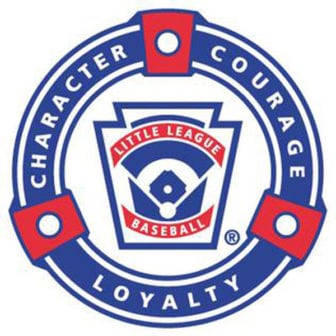
July 9, 2018, Asbury Park Press
In both the nonprofit and for-profit worlds, one negative story can wipe out years of good ones. Holbrook, New Jersey’s Little League team should be known for its 2017 District 18 Championship win, fifty years after its inception, but instead the 501c3 nonprofit is famous for the two league leaders, members of the board of directors, who were charged with stealing over $118,000 from the team. The misuse of funds in Holbrook might not have been discovered if it weren’t for an anonymous tip.
It’s not just Holbrook’s Little League, either; leagues have lost more than $1 million in the last few years in just two New Jersey counties, Monmouth and Ocean. It’s a big pot of exposed money, since it is estimated that parents spend $800 million in New Jersey alone on their children’s organized sports. Nationally, that is a $19 billion business.
But those big numbers shouldn’t fool you; these are small organizations, often run fairly informally by volunteers, and that often means spotty or no checks and balances. Often, it’s the same person who takes in money, makes deposits in the account, and approves invoices and pays them. With only half the teams in the country using online registration, that is a great deal of cash and checks coming to one person, which is the very definition of bad practice for nonprofits.
And obviously some of these cases are sloppiness, but others are more purposeful and systematic; of these last, many do go unpunished, but a significant number have been prosecuted.
Nationwide, an estimated 1,100 people have gone to prison and an estimated $1 billion has been stolen from youth sports leagues since 2009, according to the League Network.
Sign up for our free newsletters
Subscribe to NPQ's newsletters to have our top stories delivered directly to your inbox.
By signing up, you agree to our privacy policy and terms of use, and to receive messages from NPQ and our partners.
The Jersey Shore is no exception, with prosecutors in both Monmouth and Ocean counties arresting youth sports officials on charges of stealing more than $1.4 million over the last decade—including, most recently, $400,000 from the Freehold Soccer League and another $118,000 from Holbrook Little League in Jackson.
In the latest 990 available for review for the Holbrook team, 2014, it had expenses of $270,509 and income $264,008. With that budget of just about a quarter of a million, the IRS, which has been atrophying from budget cuts, may be less inclined to audit all the Little Leagues.
The Little League, founded in 1939, currently has almost 200,000 teams, covering all 50 US states and 80 other countries. The teams are run as individual nonprofits affiliated with the Little League, and each should have a board and its own policies and procedures. The majority of the NJ teams are out of compliance; they are late and have not filed their financial disclosure—the 990 forms—as of June.
“Stealing from a youth league is easy,” said Jay Whitehead, CEO and co-founder of the League Network, a Newark-based nonprofit that helps youth sports officials raise money and stay on the right side of the law. “If it’s easy, people are going to do it.”
His organization has suggested several steps to prevent theft: no league debit or credit cards, two signatures on checks over $500, use online registration, and do not take cash to register the sports participants. This needs to be ongoing and reinforced, as there’s a great deal of turnover in Little Leagues as parents move on as their children grow up. There needs to be complete transparency, as well, which would also assist in the informing of the new League leaders that come aboard.
The sad fact is that besides disappointing children and parents, such stories have ripples leading to such statements as the one made by this reporter in the Asbury Park Press: “[I]n reality, oversight of nonprofits are so lax that it makes theft from youth sports as easy as hitting a T-ball.” It’s a throwaway broad-brush statement, but it does nothing for the sector’s credibility. Local leagues should have mastered the simplest of checks and balances by now, and we encourage those who are not yet there to get there quickly.—Marian Conway










